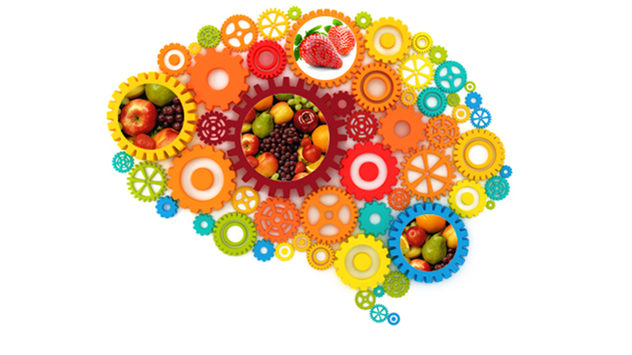As a Registered Dietitian Nutritionist (RDN), it’s my job to help Veterans understand how changes to their diets and lifestyles can change their lives. Here are the most common reactions that I see:
“I feel so much better, physically and mentally!”
“I feel like a new man!”
It’s true. One of the biggest benefits to improving eating and activity patterns is an enhanced mood! Your brain is fueled by the foods you consume, and what you eat can affect how your brain functions.
But that’s not all. Keeping a healthy gut is key, too. Serotonin, a neurotransmitter that is mostly made in your GI tract, regulates your sleep, appetite, mood, and pain. Low levels of serotonin are linked to an increased risk of low mood and depression. This complex pathway is not entirely understood, but early research from the National Institute of Health suggests achieving an optimal level of serotonin production will help keep the body in good health.
So, what can you do to keep a healthy mind and gut?
Getting Started
- Follow Mediterranean Lifestyle guidelines to reduce inflammation and reduce your risk of chronic disease.
- Water: Consume at least 64 ounces each day (for most healthy individuals; if you have Congestive Heart Failure, are on dialysis, or another medical condition, you may have different fluid needs).
- Vegetables: Eat at least 3 servings each day.
- Fruit: Eat at least 2 servings each day.
- Fish high in omega-3 fatty acids such as wild Alaskan salmon, mackerel, herring, lake trout, sardines, albacore tuna: Eat 2 servings per week.
- Limit processed foods, refined sugars and sugary beverages.
- Exercise at least 150 minutes/week.
It can be overwhelming to think about changing your diet and lifestyle, but there are many resources available at your local VA. If you want to get started on a journey toward improving your mind, body and spirit, contact your PACT team or your local MOVE! Weight Management Program.
Many VA facilities also offer Healthy Teaching Kitchen classes where you can learn to prepare healthy foods with delicious flavors. If you’re interested in these great opportunities or other nutrition-related topics, contact your local VA to speak with a Registered Dietitian Nutritionist. Be sure to contact your PACT team or Mental Health team if you are experiencing symptoms of anxiety, depression, or changes in mood.
Erin Vaillancourt has been a registered dietitian nutritionist at the Saginaw, Michigan VA Medical Center for the past 12 years. She has a CDE in diabetes management and an MS in Nutrition from Central Michigan University. Erin works in the outpatient MOVE clinic counseling Veterans individually focusing on weight reduction and diabetes. She also teaches a variety of classes and support groups through the Healthy Teaching Kitchen, MOVE! Program and Diabetes Management Programs.
Topics in this story
More Stories
Study underscores important role COVID vaccination can have in protecting Veterans from infection and reducing long-term health consequences
Columbia VA’s robotic surgery teams completed their 800th robotic surgery and are on schedule to hit 1,000 by the end of the year.
In a decentralized clinical trial, Veterans can participate from their own homes or local VA instead of having to travel to a research site.







The “original” Mediterranean diet did not include loads of vegetable oil (olive) and fatty fish. If you want a healthy diet where you can loose weight, drastically lower cholesterol (for most) and defeat Type II diabetes, these suggestions aren’t going to do much good. Fats and oils take too much work to burn off and give you a steady upward trend of weight gain. If you want something that actually works and doesn’t take a lot of calorie counting and stress, try a WFPB (whole food, plant based diet) with no added fats or oils. Check out PCRM.org, Forks Over Knives, The China Study (book) . The VA needs to be cutting edge on good diet given the stuff all us veterans have been exposed to.
I’m on the flipside of most dietary discussions. I have trouble keeping weight on. I have to monitor my eating to make sure I eat “enough”. I don’t have much of an appetite and a few bites of food usually fill me up. I have to force myself to finish a meal. I only drink about (5) glasses of liquid a day if that. I consider myself healthy for my age (58) but see room for improvement. What would a dietician say to a person such as myself.
what foods should I eat or not eat to prevent heart burn. It sometimes very painful and I faint for 6 seconds.